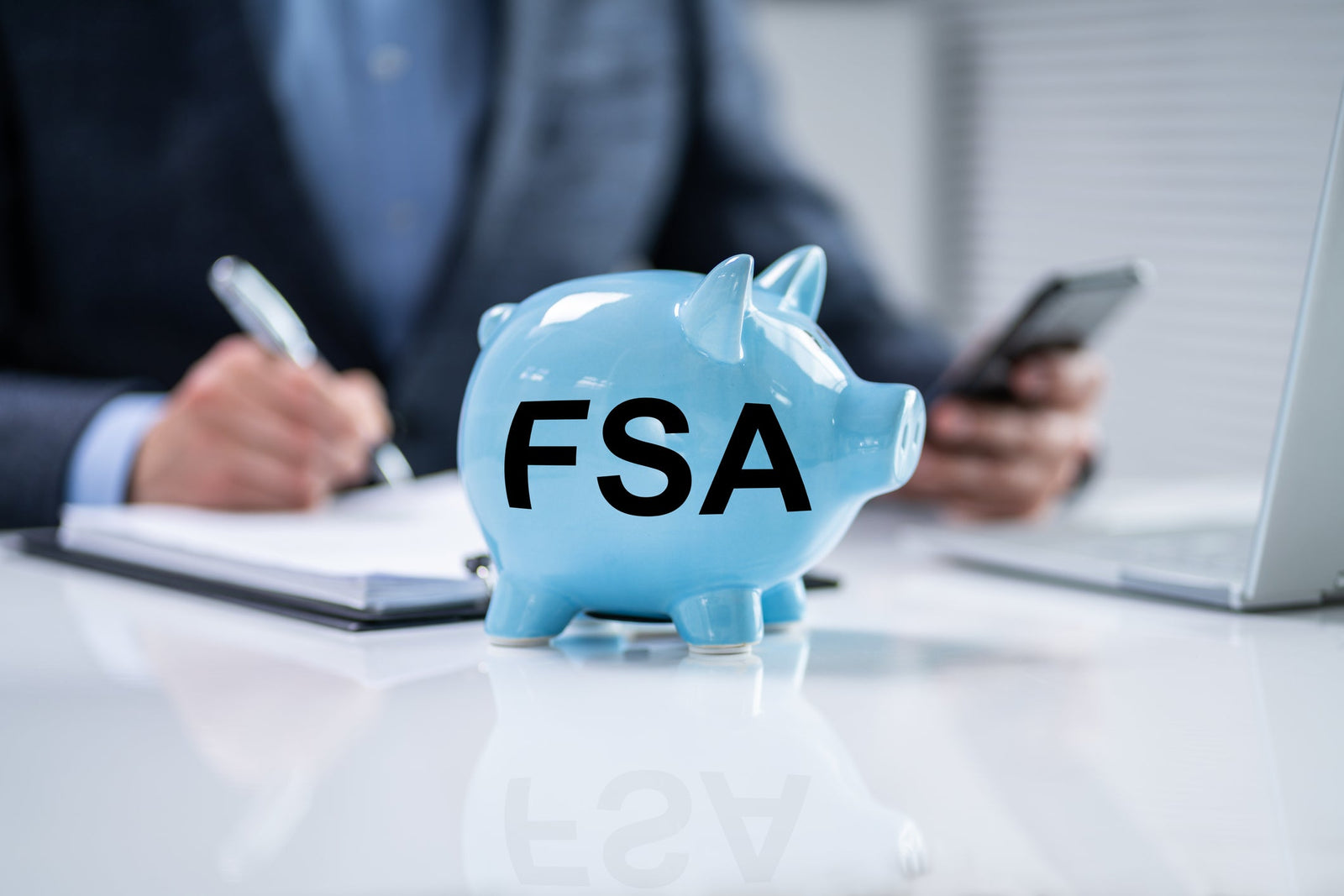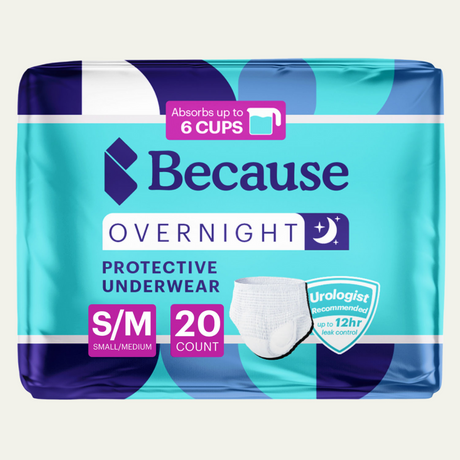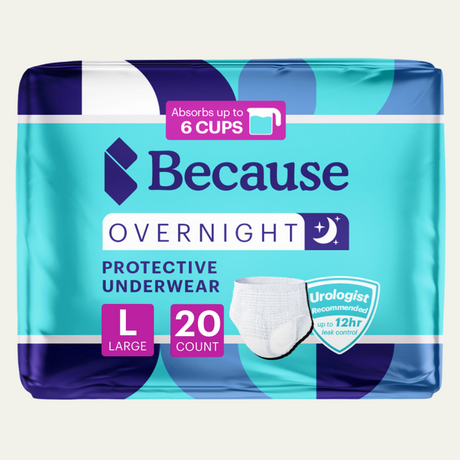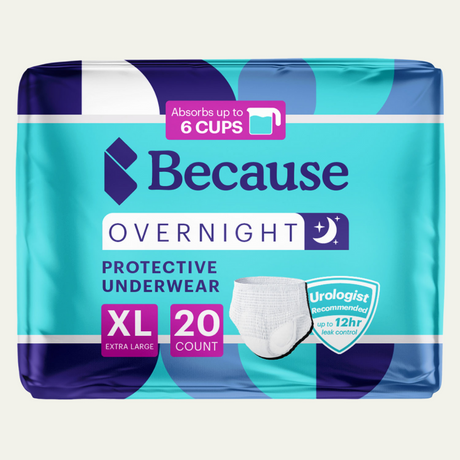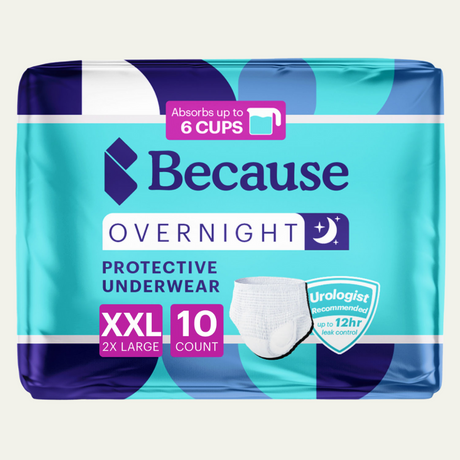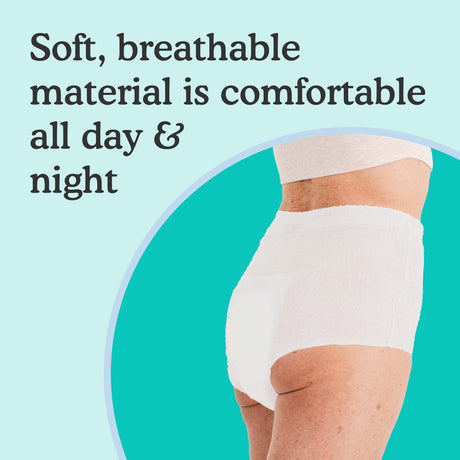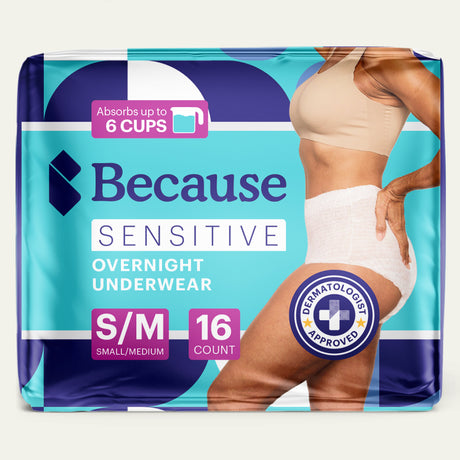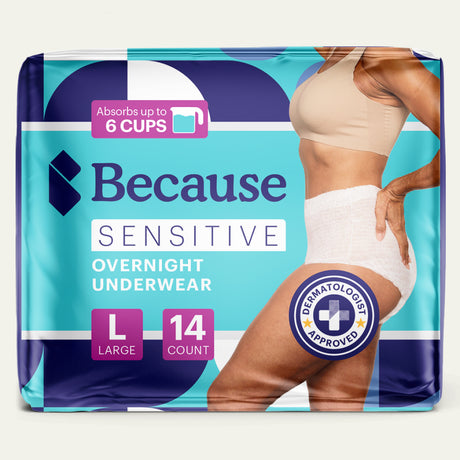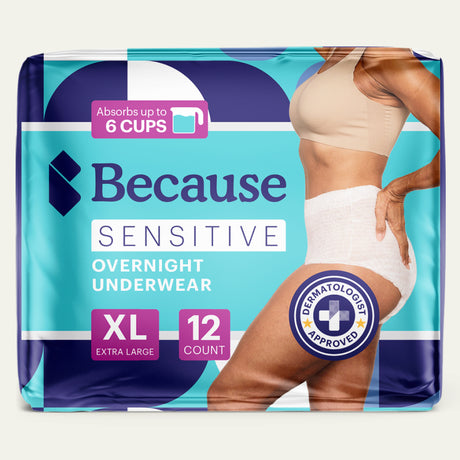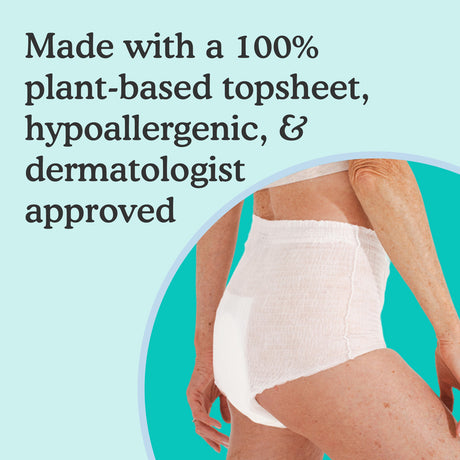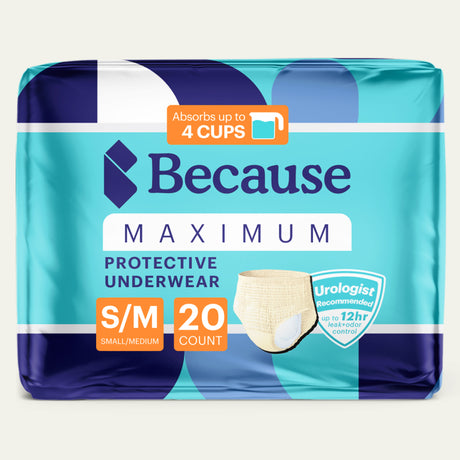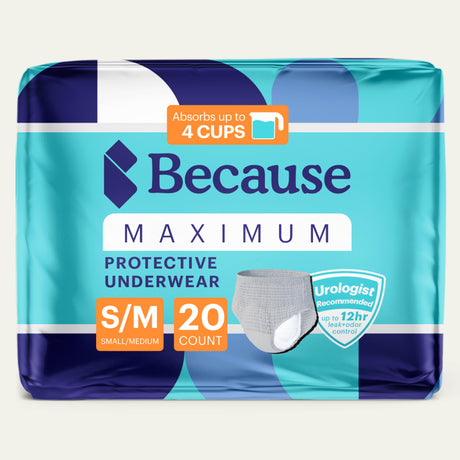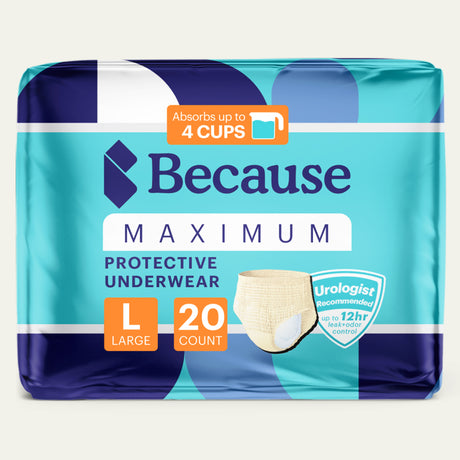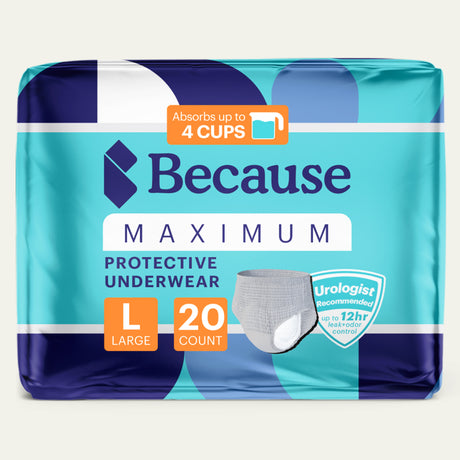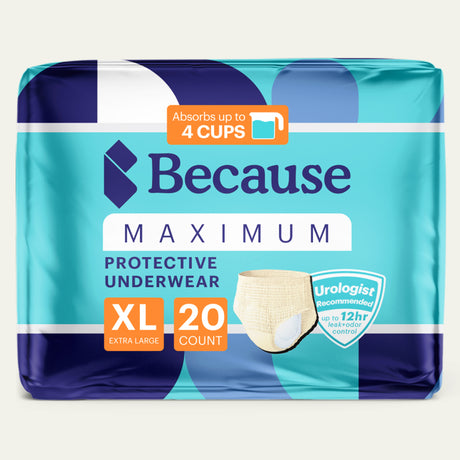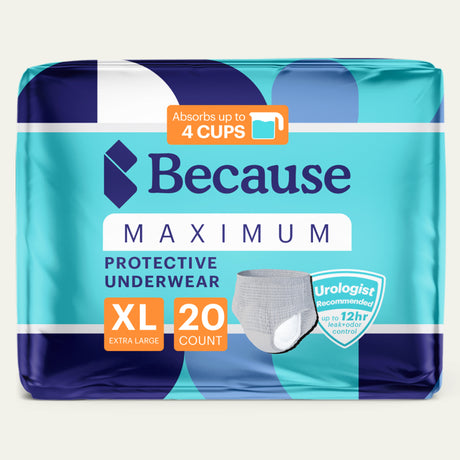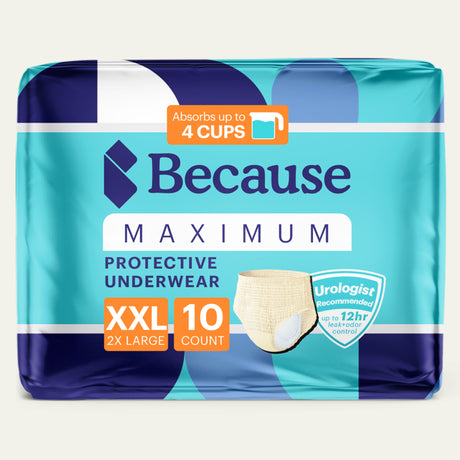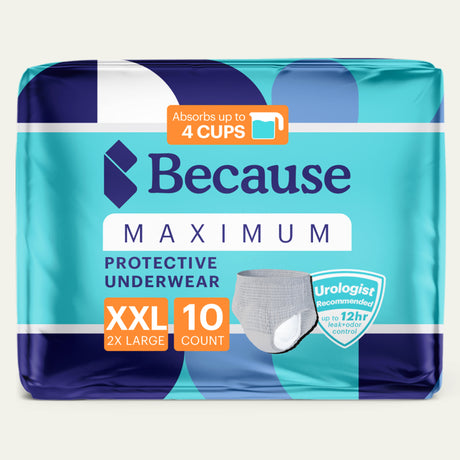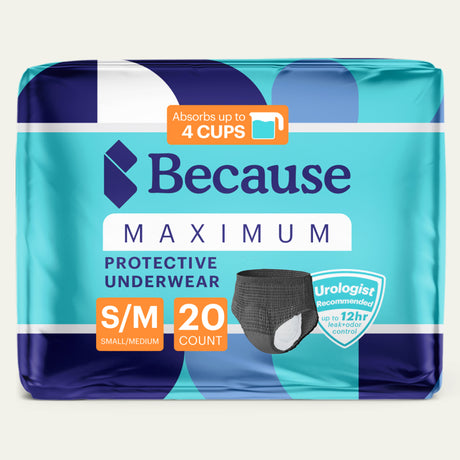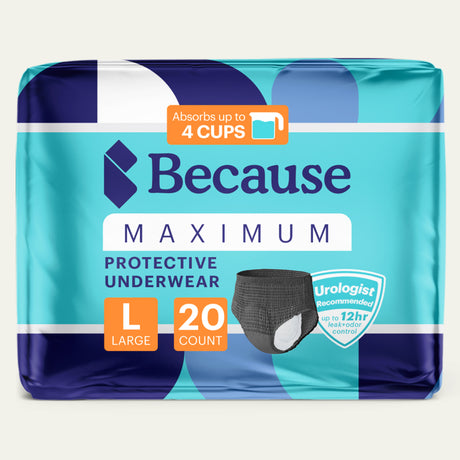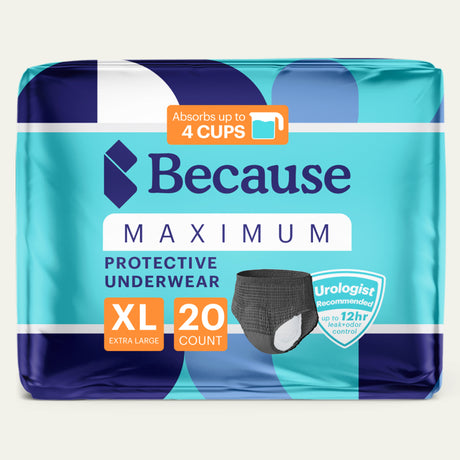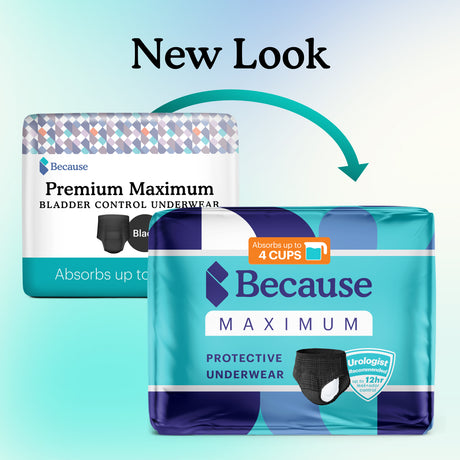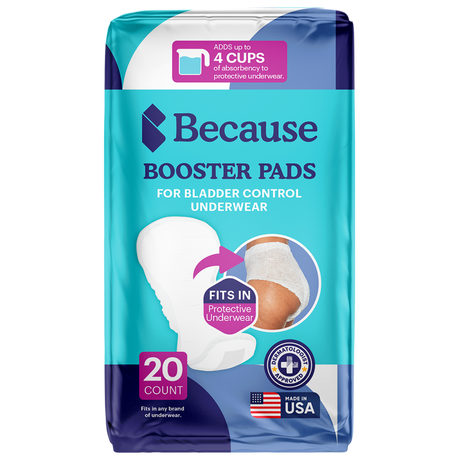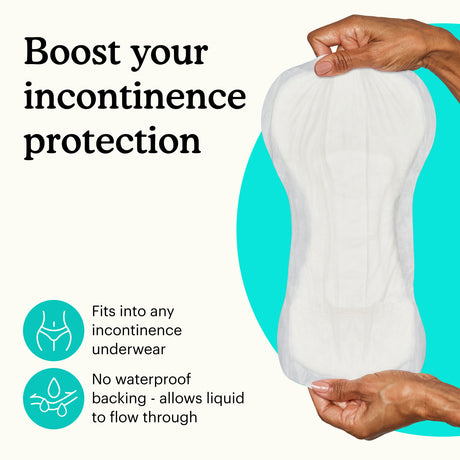For the 423 million people worldwide living with incontinence, it can be a daily challenge that extends far beyond physical discomfort. It touches every aspect of daily life, from work to social activities, and even getting a good night’s sleep. The impact on quality of life can be emotionally and mentally draining.
Incontinence supplies play a vital role in bringing comfort and dignity back into the lives of incontinence sufferers, but the added expense can be daunting for many. However, a Flexible Spending Account (FSA) can be a game changer for those who are struggling with the financial burden of managing incontinence
In this blog post, we’ll delve into the question, “Are incontinence supplies covered by FSA?” We’ll also explain how to leverage your FSA funds to obtain essential products like absorbent pads, adult briefs, and other protective undergarments.

Are Adult Diapers FSA Eligible?
Yes, adult diapers are typically FSA eligible. Since adult diapers are essential for individuals with incontinence, they usually qualify for FSA reimbursement. Additionally, incontinence pads, guards, and bed pads may also qualify for reimbursement. However, policies can vary, so it’s important to check with your provider for confirmation
Other FSA Eligible Incontinence Supplies
So, are incontinence supplies covered by FSA? In most cases, the answer is yes! One of the advantages of a Flexible Spending Account is that it often covers medical needs that aren’t typically covered by private insurance or Medicare.
FSA guidelines usually include medical expenses and supplies required for managing a medical condition, and incontinence falls into this category. In addition to adult diapers, here’s a list of items that may be eligible for reimbursement:
- Absorbent Pads, Guards, and Liners: These can be used alone or in combination with other incontinence products to provide additional protection and comfort.
- Protective Briefs: This category includes products such as pull-on style underwear or tabbed briefs designed to provide discreet protection for those with moderate to heavy incontinence.
- Underpads: These disposable, heavy absorbency waterproof pads are often placed on top of beds or chairs to protect against leaks.
- Boosters: Booster pads are pads that can be used with adult diapers to add additional absorbency.
If you are unsure which incontinence supplies you may need, take our Bladder Protection Quiz for personalized guidance, and get a sample pack to try.

Requirements and Restrictions for FSA Coverage
While FSA coverage for incontinence supplies can provide much needed financial relief, there are some things you need to know about requirements and potential restrictions that may apply.
1. Medical Necessity and the CARES Act
The Coronavirus Aid, Relief, and Economic Security Act (CARES) was signed into law in 2020. The CARES Act expanded FSA for many over the counter items, including incontinence supplies, diabetic testing supplies, and even contact lens supplies.
To be eligible for FSA coverage, incontinence supplies must be deemed medically necessary. This means that you’ll need a healthcare provider's diagnosis confirming the need for these supplies to manage the symptoms of incontinence. Without the proper documentation from your doctor, reimbursement may not be possible.
2. Reimbursement Documentation
Keeping accurate records is crucial for ensuring that you receive FSA reimbursement for incontinence supplies. Maintain all receipts and documentation related to your purchases, including invoices, prescriptions, and any other paperwork required by your FSA administrator. Clear documentation helps to ensure a smooth reimbursement process.
3. Plan-Specific Rules
FSA plans can vary, and some may have specific rules or restrictions regarding eligible expenses. Be sure to review your FSA plan carefully and reach out to your plan administrator with any questions about rules and restrictions that may apply to incontinence supplies.
4. Plan Year Deadline
Some FSA plans operate on a “use it or lose it” principle, meaning that any funds not spent within the plan year can be forfeited. However, some plans may offer a grace period of two to three months. Other plans will only carry over up to $615 each year.
Be aware of your plan’s deadline for spending FSA funds and pay careful attention to how much money you deposit to ensure that you make the most of the financial assistance available to you.
5. In-Network Providers
Some FSA plans may have preferred providers or suppliers. Using these preferred providers when purchasing incontinence supplies may make the reimbursement process easier, so it’s worth exploring this option if available.

How to Purchase Diapers and other Incontinence Supplies with FSA Funds
Depending on your specific FSA program, there may be a few different ways you can use your FSA funds to pay for incontinence supplies.
FSA Debit Card
Some FSA programs provide a debit card for their contributors to use when making FSA eligible purchases. When you check out in person or online, simply use your FSA debit card just like any other debit card.
Using your FSA debit card to pay for incontinence supplies streamlines the process by eliminating the need to wait for reimbursement for eligible expenses. However, you will still need to submit documentation, such as a receipt, so be sure to follow up as required by your plan.
It’s also important to note that not all retailers accept FSA debit cards. Your purchase could also be declined if you attempt to purchase ineligible items or have insufficient funds available. It’s best to have an alternative form of payment available just in case your FSA debit card is declined.
Out of Pocket Payment with Reimbursement Form
If your plan doesn’t offer a debit card or your chosen retailer doesn’t accept them, you will likely need to make your purchase out of pocket and submit the required paperwork for reimbursement.
Reimbursement forms can typically be filled out online and the process is very straightforward. However, be sure to keep track of your receipts as this will serve as proof of your purchase and payment. Once your request is processed, you will receive reimbursement by check or direct deposit.
Answering Your Frequently Asked Questions
What is an FSA and How Does It Work?
A Flexible Spending Account (FSA) is a tax-advantaged account that allows you to set aside pre-tax dollars from your paycheck to cover eligible medical expenses. These funds can be used for various healthcare costs, including doctor’s visits, prescription medications, and medical supplies, reducing your taxable income and the financial burden of certain medical needs.
What is an HSA and Does It Cover Incontinence Supplies?
A Health Savings Account (HSA) is similar to an FSA in that it’s a dedicated account where you can set aside money to pay for certain healthcare expenses. HSAs are controlled by the individual rather than the employer. Funds can be withdrawn tax-free, as long as you use them for qualifying medical expenses.
In order to be eligible for an HSA, you must be enrolled in a High Deductible Health Plan. HSAs are less common than FSAs because not all employers offer high deductible plans. However, if available, they are a great option because the money rolls over each year.
HSA funds can typically be used to purchase incontinence supplies and other medical products. Purchasing and reimbursement methods are similar to an FSA, with either a special debit card or out of pocket payment with reimbursement.
What Other Incontinence Related Medical Expenses Are Covered By FSA/HSA?
FSA and HSA funds can be used to pay for a range of incontinence related medical expenses beyond incontinence supplies. This can include prescription medications to manage incontinence, doctor’s visits and urologist’s consultations, pelvic floor therapy, and expenses associated with diagnostic and testing assessments.
In some cases, surgical interventions for incontinence, such as sling procedures may also be eligible for coverage. Other related supplies like catheters and wound or skin care products for managing conditions related to incontinence can often be reimbursed as well.
What medical supplies are FSA eligible?
Outside of incontinence supplies, other medical supplies that are typically FSA-eligible include items that are necessary for the diagnosis, treatment, or prevention of medical conditions. These commonly include first aid supplies, prescription medications, over-the-counter drugs with a prescription, and durable medical equipment like crutches or blood pressure monitors. FSA eligibility generally covers products that address a specific health need as determined by a healthcare provider.
Is incontinence considered a disability under the ADA?
Incontinence, on its own, is not explicitly listed as a disability under the Americans with Disabilities Act (ADA). However, if incontinence substantially limits one or more major life activities, it may qualify as a disability under the ADA. The determination is made on a case-by-case basis, considering the impact of the condition on the individual's daily life and whether accommodations are needed to perform essential functions or access public services.
Navigating Incontinence and Your FSA
While adult diapers and other absorbent incontinence supplies are medically necessary for many people, Medicare and most private insurance plans do not cover the costs. For those who do not qualify for Medicaid, the financial burden can be great.
Fortunately, FSAs and HSAs can help manage these expenses. These accounts provide a great way to save money on incontinence supplies, as well as other related expenses, such as prescriptions, diagnostics, and more.
If you're struggling with incontinence, join one of our private support groups today!
Women's Incontinence Support Group
Men's Incontinence Support Group
Sources:
U.S. Department of the Treasury. (n.d.). Coronavirus: Resources, Updates, and What You Should Know. https://home.treasury.gov/policy-issues/coronavirus
National Institutes of Health, Office of Human Resources. (2022, December). Flexible Spending Accounts Program: New 2023 Limits. https://hr.nih.gov/about/news/benefits-newsletter/2022/12/flexible-spending-accounts-program-new-2023-limits-hcfsa-and#:~:text=For%202023%2C%20participants%20may%20contribute,%242%2C500%20if%20married%2C%20filing%20separately
North Carolina Office of State Human Resources. (n.d.). FSA Eligibility List (FSAstore.com). https://oshr.nc.gov/documents/files/fsa-eligibility-list-fsastore-com/open
